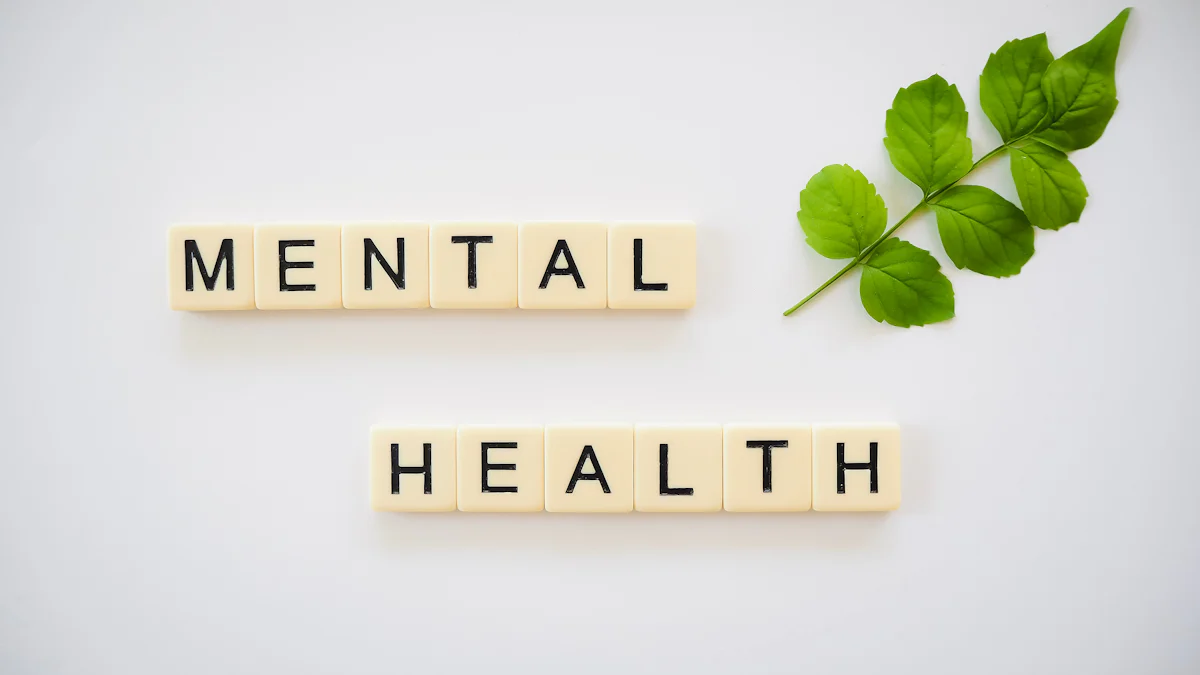Regret is inevitable. It’s a natural part of life. But when we allow regret to consume us, we stop moving forward. Here we come up with 10 tips on how to cope with regret to move on in life in a healthy manner.
What Kinds of Choices Do We Regret?
There are many choices we make in life that we regret. Sometimes, we make choices that are not in our best interest, and other times, we simply make bad choices. Whatever the case may be, regret is a common emotion that everyone experiences at one point or another.
Some of the most common choice’s people regret are related to relationships. We may regret choosing to date or marry someone, or we may regret not choosing to date or marry someone. Other relationship-related regrets include things like having an affair or getting divorced.
Career-related choices are also commonly regretted. People may regret going to college, changing careers, or taking a job they hate. Financial decisions are another area where people often have regrets. Poor money management can lead to regrets about things like buying a home, taking out loans, and investing in stocks.
Ultimately, the choices we regret the most are usually those that have had a negative impact on our lives. These choices can cause us pain, suffering, and heartache. If we can learn from our mistakes, however, then even our regrets can serve a purpose.
What Do People Regret Most?
People regret not doing things more than they regret doing things. This is because humans are wired to focus on the negative and dwell on what could have been. We tend to beat ourselves up for mistakes and missed opportunities, which can lead to numerous regrets.
Some of the most common regrets include not spending enough time with loved ones, not taking care of oneself, procrastinating, and being too hard on oneself. We often regret things that we cannot change, such as the past or things that we have no control over. This can frustrate and lead to a feeling of powerlessness.
It is important to remember that everyone makes mistakes and has regrets. What matters most is how you learn from your mistakes and move forward. Try to focus on the present and future, and let go of the past.
How Long Does Regret Last?
How long does regret last? That is a tough question to answer. It depends on the person and the situation. Some people may never forget a regret, while others may move on relatively quickly.
Regret doesn’t seem to go away easily. That is why people typically feel down and discouraged about the past. They wish they could change the past. However, that regret is a part of life. It’s something we are going to have to live with. You can control some regrets that you have in life. For example, you can try to avoid repeating mistakes. Or you can try to learn from your mistakes. These two things will help you prevent having regrets in the future. In general, though, regret can last for a very long time.

Why Do People Feel Guilt and Regret When Experiencing Grief?
People often feel guilty and regretful when they are grieving because they may feel like they could have done more to prevent the death or could have been a better support to the deceased. They may also feel guilty about not being able to do anything to change the situation. Additionally, people may regret not having said certain things to the deceased or not having spent more time with them. These feelings are normal and part of the grieving process.
Avoid Obsessing About Past Regrets
The way we think often caused regrets. We think about the bad things that happened in our lives, and that is why we get sad. If you want to live a happier life, you should learn to let go of the past and focus on the present. If you focus on the past, you will feel sad and angry. But, if you focus on the present, you will feel positive and motivated. We cannot change the past, but we can change the future. Therefore, we must always focus on what we can do now. Focusing on the present will help you overcome your problems.
It’s important to avoid obsessing about past regrets, as this can lead to feelings of anxiety and depression. Instead, focus on the present moment and what you can do to make things better. Let go of the things you can’t change and focus on what you can control. This will help you move forward positively.
When you are feeling depressed, you might think a lot about your past mistakes. These past mistakes may bother you so much that you can’t enjoy your life today. Therefore it is important to think about your future and what you want to do with it. If you focus on the future, you’ll find that it is much easier to cope with negative thoughts. It’s also important to get involved in positive activities, like going out for a walk. The important thing to remember is that no matter what happens, you should always stay happy.

10 tips to stop feeling guilty
1. Acknowledge your guilt.
Most people believe that if they don’t acknowledge their guilt, they can simply forget about it and move on. This, however, is not the case. By burying your head in the sand and refusing to face up to your wrongdoings, you are only delaying the inevitable and making things worse in the long run. Acknowledging your guilt is the first step on the road to recovery; it allows you to take responsibility for your actions and opens up the possibility of forgiveness.
2. Determine if your guilt is warranted.
When you feel guilty, do you ever wonder if it is warranted? Do you think that maybe your guilt is just a product of your imagination? If so, there are a few things you can do to help figure out if your guilt is warranted or not. The first step is to examine the situation that led to your feelings of guilt. Ask yourself if what you did was truly wrong, or if it was just an honest mistake. If the thing you did was wrong, try to determine how bad the consequences were. Sometimes our guilt is based on our own inflated sense of right and wrong, rather than on reality. Also, it’s important to consider how badly you feel about what you did. Guilt can be a powerful motivator, but it’s important to make sure that the motivation is coming from a healthy place.
3. Forgive yourself for your past mistakes.
We all make mistakes. It’s human nature. But sometimes we can be so hard on ourselves that we can’t seem to forgive ourselves for our past transgressions. We let our mistakes define us and keep us from moving forward. But, the truth is that you need to forgive yourself to move on.
You need to let go of the guilt and the shame that you’re feeling and focus on the future. Yes, you made a mistake, but you can learn from it and move on. You are not your mistakes, and you don’t have to be defined by them.
Forgiveness is not about condoning what you did or making excuses for yourself. It’s about freeing yourself from the chains of the past so that you can move on with your life. So, how do you go about forgiving yourself?
4. Learn from your mistakes.
Making mistakes is a natural and unavoidable part of life. We learn from our mistakes, and we grow as individuals. However, it’s important to remember that it created not all mistakes equal. Some mistakes are more harmful than others, and can have long-term consequences. It’s crucial to learn from your most harmful mistakes and do everything you can to avoid making them again.
5. Let go of things you cannot control.
It’s a hard reality to face, but there are some things in life that we cannot control. We may worry about them, stress about them, and spend hours trying to figure out a way to change them, but in the end we have to let go. It’s difficult, but it’s necessary.
One of the most important things to remember is that we can only control our actions and reactions. We can’t control what others do or how they feel. We can’t force people to like us, or make them behave the way we want them to. Furthermore, we can’t fix everything that’s wrong in the world, and we can’t stop bad things from happening.
All we can do is focus on our lives, and on the things we can control.
6. Make amends for your wrongdoings.
Making amends for your wrongdoings is one of the most important things that you can do in life. It shows that you are willing to take responsibility for your actions and that you are sincere in your desire to make things right. There are several steps that you can take to make amends, and each one will be different depending on the situation. Here are a few tips:
- Make a list of the people that you have hurt and apologize to them individually.
- Try to repair any damage that you may have caused.
- Make a donation to a charity or organization that supports the cause that you care about.
- Volunteer your time at a local soup kitchen or homeless shelter.
- Write an essay about what you learned from your mistake and share it with as many people as possible.
7. Practice self-compassion.
Self-compassion is defined as the ability to extend compassion and understanding to oneself in times of pain or failure. It involves accepting one’s thoughts and feelings without judgement, and being kind and caring towards oneself. Self-compassion has been beneficial for mental health, reducing stress, anxiety, and depression. It can also help improve relationships, increase resilience, and boost self-esteem.
8. Seek professional help if needed.
There is no shame in seeking professional help if you are struggling with a mental health condition. In fact, it can be the best decision you ever make. A professional can provide you with the tools and support you need to get your life back on track.
9. Set healthy boundaries.
Setting healthy boundaries is key to a balanced, happy life. When we don’t set boundaries, we end up resentful and overwhelmed. But when we do set boundaries, we create space for the things that matter most to us.
There are many factors to consider when setting boundaries. For example, what are our values and priorities? What makes us feel good and what makes us feel bad? What do we want more of in our lives?
Once we have a good understanding of ourselves, we can start setting some boundaries. We might start with something small, like saying no to plans that don’t fit our schedule or values. Or maybe we decide to take a break from social media.
The most important thing is to be gentle with ourselves as we experiment with different boundary-setting techniques.
10. Live in the present moment.
When you’re able to focus on the present, you’ll find that life is less hectic and more enjoyable. You’ll be able to appreciate the small moments that make up your day, instead of always looking ahead to what’s next. And you’ll be less likely to get wrapped up in negative thoughts and emotions.
How to cope with regrets in life
Regrets are a part of life, and it’s essential to learn how to cope with them. One way to do this is to accept that regrets are a natural part of life and that they’re not always a bad thing. It’s okay to feel regretful about something, but try not to dwell on it or let it consume you. Instead, focus on the present and the future and what you can do to improve things. Another way to deal with regrets is to talk about them with someone you trust. This can help you process your feelings and figure out what you can do to make things right. Lastly, try to learn from your mistakes, so you don’t repeat them in the future.
How to cope with academic regrets
It’s normal to have regrets about your academic career. Maybe you didn’t get the grades you wanted in a particular class, or you didn’t take advantage of all the opportunities available to you. Whatever your regrets may be, there are ways to cope with them so that they don’t hold you back.
First, accept that you have regrets and that they are part of your story. Don’t dwell on them or beat yourself up for things that are in the past. Instead, focus on what you can do now to improve your situation.
Second, learn from your regrets. What can you do differently in the future to avoid making the same mistakes? Use your regrets as motivation to do better in the future.
Finally, don’t let your regrets define you. You are more than your academic career, and your worth is not determined by your grades or achievements. Remember that everyone makes mistakes and has things they wish they could change. What matters most is how you deal with your regrets and what you learn from them.
How to cope with deep regret
Deep regret can be a hard emotion to deal with. It can be overwhelming and all-consuming, making it hard to focus on anything else. If you’re struggling to cope with deep regret, here are a few things that may help:
1. Acknowledge your feelings. It’s okay to feel sad, angry, or scared. Don’t try to push your emotions away. Allow yourself to feel them, and then let them go.
2. Talk about what happened. Talking about your regrets can be painful, but it can also help you process them and move on.
3. Forgive yourself. This is probably the most important step. You need to forgive yourself for whatever happened, even if it was something you couldn’t control. Only then will you be able to move on to your regrets.
4. Focus on the present. Once you’ve dealt with your regrets, it’s time to focus on the present. Don’t dwell on the past; instead, focus on what you can do now and in the future.
Q & A
Is it ok to regret?
There is no right or wrong answer to whether or not it is ok to regret something, as everyone experiences regret differently. Some people may feel guilty and unhappy after making a mistake, while others may simply feel like they have learned a valuable lesson. Regret can be helpful in motivating people to learn from their mistakes and change their behavior, but it can also be harmful if it keeps them trapped in the past. Ultimately, the decision of whether to regret something depends on the individual and what is best for them.
Why is it bad to regret?
There are a few reasons regret can be harmful. First, it can lead to feelings of sadness and depression. Second, it can cause you to dwell on the past and miss out on the present. And third, it can prevent you from moving forward and making progress in your life. So if you’re feeling regretful about something, try to let it focus on the present.
How to cope with feelings of regret
There are a few things you can do to cope with feelings of regret. First, try to understand why you are feeling regretful. If it is because of something you did, try to learn from the experience and make sure not to repeat the same mistake. If you are regretting something you didn’t do, try to think about what you could have done differently and how you can prevent that situation from happening again. It is also important to forgive yourself and move on. Dwelling on your regrets will only make you feel worse. Lastly, focus on the positive things in your life and be grateful for what you have.
Final Thoughts on Regret
It is often said that hindsight is 20/20. This means that looking back on a situation, we can see things more clearly than we could at the time. This can be both good and bad. On one hand, we may see that we made the best decision possible, given the information we had at the time. On the other hand, we may regret not making a different choice.
There is no right or wrong when it comes to regret. What matters is how we deal with it. If we dwell on our regrets, they can eat away at us and make us feel like we are not good enough. However, if we accept our regrets as part of our life story, they can strengthen us and wiser. Finally, it is up to each of us to decide what to do with our regrets. We can let them hold us back or use them as motivation to move forward.







